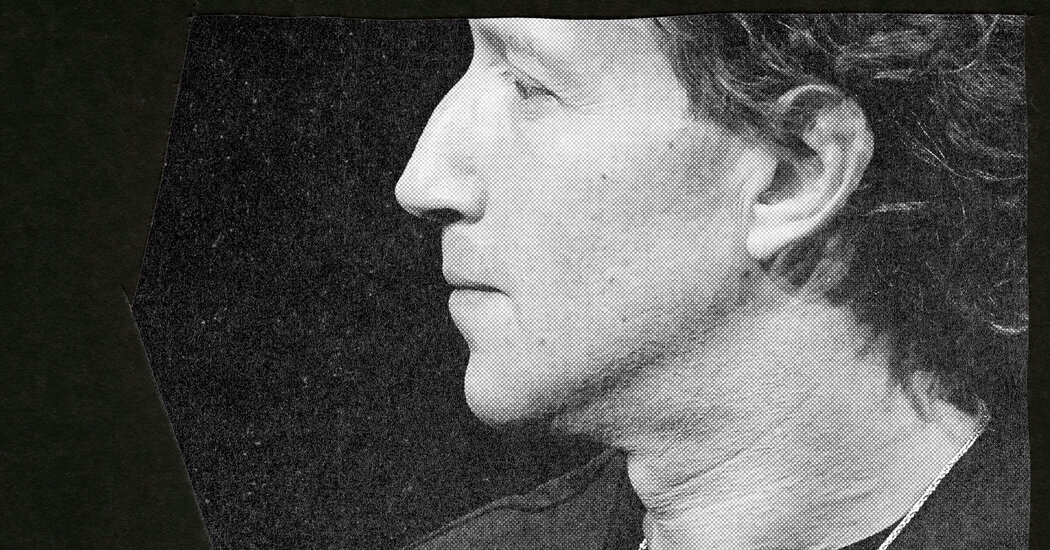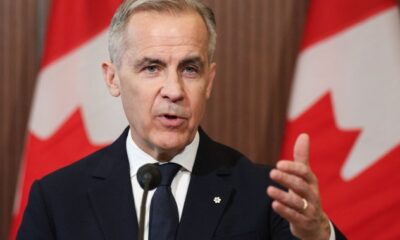Breaking News
Opinion | Mark Zuckerberg’s Macho Posturing Looks a Lot Like Cowardice

Mark Zuckerberg’s recent appearance on Joe Rogan’s podcast stirred mixed emotions. The chief executive of Meta, Facebook’s parent company, raised valid points about the limitations of fact-checking and the potential manipulation of private companies by governments.
Growing up under an authoritarian regime, I value the importance of free speech that Zuckerberg emphasized. However, actions speak louder than words, especially when it comes to understanding authoritarian regimes.
During the podcast, Zuckerberg discussed societal perceptions and his newfound passion for jujitsu, resonating with some despite not being the target audience. The camaraderie over A.C.L. tears and martial arts content struck a chord.
However, Zuckerberg’s company recently faced criticism for removing tampons from men’s restrooms, citing “masculine energy” as the reason, which contradicted the narrative of promoting free speech. The shift towards allowing hate speech and misinformation on Facebook raised concerns about the platform’s stance on important societal issues.
The evolving policies on hate speech and misinformation reflect a complex challenge in today’s digital landscape. While fact-checking has its limitations, the decision to allow unrestricted content raises ethical questions.
The updated Messenger App restricting certain themes also sparked controversy, highlighting the delicate balance between expression and censorship.
The shifting dynamics within Meta’s policies raise concerns about freedom of expression and corporate influence. Zuckerberg’s alignment with certain political figures and controversial decisions reflect a concerning trend in the tech industry.
The parallels drawn between Zuckerberg’s interactions with political figures and his company’s policies underscore the complexities of power dynamics and influence in the digital age.
The implications of Zuckerberg’s statements on free speech and government intervention highlight the challenges faced by tech companies in navigating political pressures.
The intersection of free speech, government intervention, and corporate influence presents a complex landscape for tech companies like Meta. Zuckerberg’s interactions with political figures and policy decisions underscore the challenges of maintaining integrity in a rapidly evolving digital environment.
The implications of Zuckerberg’s statements on free speech and government intervention highlight the balancing act required for tech companies to navigate political pressures while upholding ethical standards.
Zuckerberg’s alignment with certain political figures and controversial decisions reflect a concerning trend in the tech industry, raising questions about the influence of power dynamics on corporate policies.
Zuckerberg’s narrative of self-expression through jujitsu contrasts with the corporate decisions that raise questions about integrity and ethical standards. The dichotomy between personal pursuits and professional conduct underscores the complexities of leadership in the digital age.
The evolving landscape of tech companies like Meta reflects the broader challenges of balancing corporate interests, political pressures, and societal expectations. Zuckerberg’s interactions with political figures and policy decisions highlight the intricate web of power dynamics shaping the digital landscape.
As Zuckerberg navigates the complexities of corporate governance and societal impact, the implications of his actions resonate beyond the tech industry, raising important questions about ethics, accountability, and the future of digital platforms.
-

 Destination8 months ago
Destination8 months agoSingapore Airlines CEO set to join board of Air India, BA News, BA
-

 Breaking News10 months ago
Breaking News10 months agoCroatia to reintroduce compulsory military draft as regional tensions soar
-

 Tech News12 months ago
Tech News12 months agoBangladeshi police agents accused of selling citizens’ personal information on Telegram
-

 Gadgets3 months ago
Gadgets3 months agoSupernatural Season 16 Revival News, Cast, Plot and Release Date
-

 Productivity11 months ago
Productivity11 months agoHow Your Contact Center Can Become A Customer Engagement Center
-

 Gadgets3 weeks ago
Gadgets3 weeks agoFallout Season 2 Potential Release Date, Cast, Plot and News
-

 Breaking News10 months ago
Breaking News10 months agoBangladesh crisis: Refaat Ahmed sworn in as Bangladesh’s new chief justice
-

 Toys12 months ago
Toys12 months ago15 of the Best Trike & Tricycles Mums Recommend























